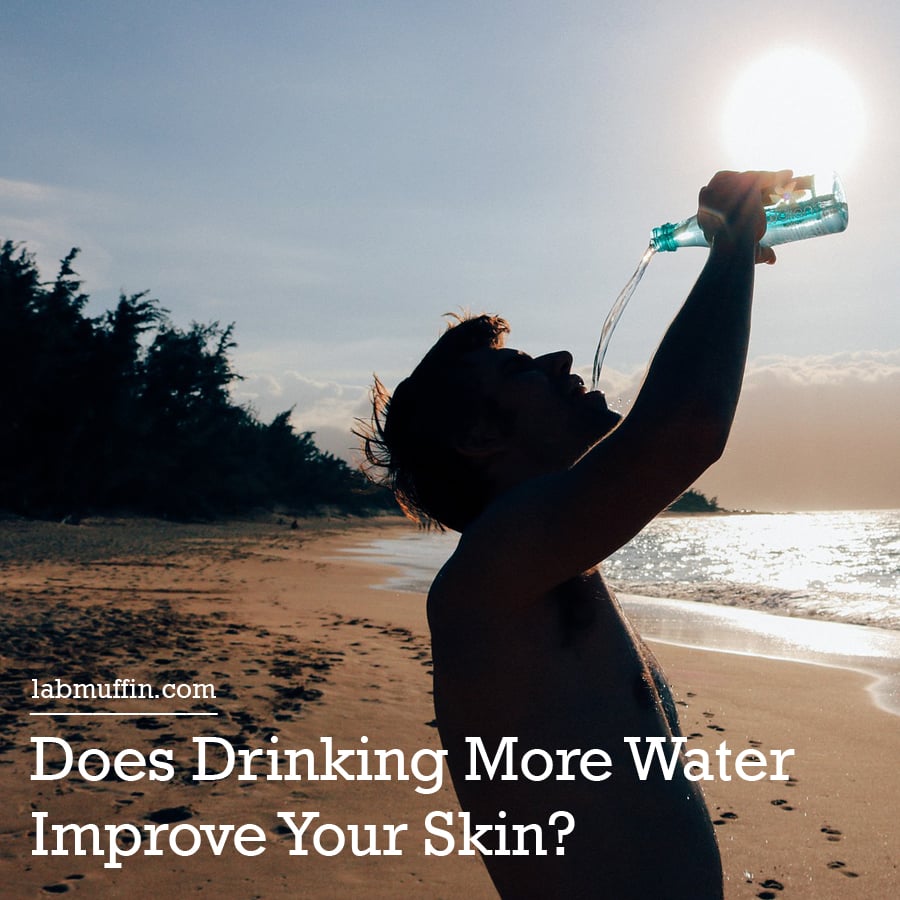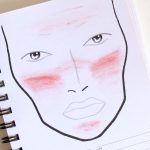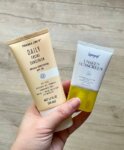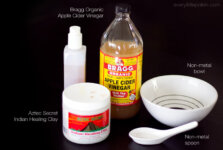“Drink more water to clear up your skin” is popular common sense advice, but is there any science to back it up? Surprisingly, there wasn’t evidence that drinking more water could improve your skin until very recently! Let’s have a look at what the science says…
There’s nothing to back up drinking 2 litres of water a day
First off, some mythbusting. You’ve probably heard the recommendation that you need to drink 2 litres (or 8 glasses) of water a day – it turns out that it’s not actually backed up by any science! On average, you lose about 2.5 L of water a day, but you also consume about 1 L of water in food and produce 300 mL of water through metabolism, so you actually only need to drink about 1.2 L of water to replace what you’ve got. Most health authorities recommend drinking when you’re thirsty (“when you’re thirsty it’s already too late” is another myth!), unless you’re in a very hot climate or you’re exercising very hard.
Studies on drinking more water and skin
I could only find 4 peer-reviewed studies on the effect of drinking more water on the skin, and unfortunately none of them have a control group (a group of people who didn’t drink extra water during that time). This is really annoying, because you can’t tell if any skin changes are due to something else entirely, like if it rained a lot during the study period and the humid weather caused skin hydration. For these reasons, none of these study results should be taken as definitive.
Mac-Mary et al. 2006 in Skin Research and Technology
- 80 people (about half-half male and female, aged 50-74 years) drank an extra 1 litre of Evian water a day for 6 weeks, on top of their normal diet.
- They found that forearm skin hydration increased by 14%, which is a similar effect to using a moisturiser. Transepidermal water loss (TEWL: evaporation of water from the skin) also increased.
- There were improvements in facial skin roughness, dryness and elasticity, though it wasn’t very noticeable for the participants.
Williams et al. 2007 in International Journal of Cosmetic Science
- 86 people (about 2.5 times more women than men, average age 31.8 years) drank 2.25 L of either mineral water or tap water a day for 4 weeks on top of their normal diet.
- The effects depended on the type of water used: mineral water led to decreased skin density and slightly increased skin thickness, while tap water gave the opposite result. pH decreased for the tap water group but stayed the same for mineral water.
- Skin roughness and wrinkliness didn’t decrease overall, but the skin of some individuals in both groups became smoother
Palma et al. 2015 in Skin Research and Technology
- 34 women (average age 24.5) drank an extra 2 L of bottled water on top of their normal diet for 30 days
- Superficial and deep hydration in the skin improved in the people who normally drank less water (average 792 mL a day), but TEWL did not
- There were very few significant changes in people who normally drank more water (average 1260 mL a day)
Palma et al. 2015 in Clinical, Cosmetic and Investigational Dermatology (open access)
- 49 women (average age 24.5) drank an extra 2 L of water on top of their normal diet for 30 days
- Women who normally drank more water (more than around 1 L) experienced less skin changes than those who normally drank less
- Superficial and deep hydration in the skin improved, while epidermal barrier function and TEWL did not
- Measurements of the skin’s “envelope function” (its elasticity, “bounciness” etc.) had mixed results
What can we tell from these studies?
There isn’t any solid evidence of what extra water can do, but we can pick out some general trends from these studies:
- Drinking an extra 2 L of water a day can have noticeable effects on the amount of water in your skin, especially if you don’t drink much water normally
- If you’re lucky, it’ll make your skin noticeably smoother, but it doesn’t seem like a common result
Verdict
If you don’t drink much water normally, upping your water intake could be worth trying for smoother skin. It’s cheap, and adequate hydration has other benefits too like improving energy levels, brain function and helping with weight loss. However, at the moment, the evidence that drinking more water works for improving everyone’s skin (or even the majority of people’s skin!) is far from clear-cut.
References
R Wolf, D Wolf, D Rudikoff and LC Parish, Nutrition and water: drinking eight glasses of water a day ensures proper skin hydration-myth or reality? Clin Dermatol 2010, 28, 380-383
S Mac-Mary, P Creidi, D Marsaut, C Courderot-Masuyer, V Cochet, T Gharbi, D Guidicelli-Arranz, F Tondu and P Humbert, Assessment of effects of an additional dietary natural mineral water uptake on skin hydration in healthy subjects by dynamic barrier function measurements and clinic scoring, Skin Res Technol 2006, 12, 199-205
S Williams, N Krueger, M Davids, D Kraus and M Kerscher, Effect of fluid intake on skin physiology: distinct differences between drinking mineral water and tap water, Int J Cosmet Sci 2007, 29, 131-138
ML Palma, L Tavares, JW Fluhr, MJ Bujan and LM Rodrigues, Positive impact of dietary water on in vivo epidermal water physiology, Skin Res Technol 2015, 21, 413-418
L Palma, L Tavares Marques, J Bujan and LM Rodrigues, Dietary water affects human skin hydration and biomechanics (open access), Clin Cosmet Investig Dermatol 2015, 8, 413-421







Thanks for the myth busting Michelle! It’s ridiculous how much stuff people say and believe to be true, even though there’s no evidence
Great summary! I think it is one of those things that we know does effect skin, but we just haven’t properly proven it yet. Imagine if we drank no water, our skin would show signs of dehydration with that classic pinch/ping test, but drink a usual amount of water and then it’s not the ‘rate limiting factor’ to great skin… All of our cells need water to work properly/efficiently [I sooo know this after a night of too many cocktails ;)] so it would make sense to me that all the skin making processes would be slowed down and not working at their best 🙂
http://www.honestyforyourskin.co.uk
I appreciate you gathering this information and sharing it with all of us! Less is not more when it comes to hydration, and it appears that more is not much “more” than moderate with this topic either. There is such a thing as drinking too much water though! Very interesting findings though! Definitely keeping this saved for the next time I see someone bring this myth up!
Great write up Michelle! All these silly myths! It’s ridiculous how much stuff people say and believe to be true, even though there’s no evidence
WOW! What an amazing post. I was quite surprised to read that there isn’t much research when it comes to water consumption and healthy skin. I almost feel lied to >_<
This is the first useful post I have read on a beauty blog for SO long! I’ve been so fed up with yet another PR spiel about the latest expensive product, and this sort of article is EXACTLY the kind of thing I want a beauty blog to tell me.
Really interesting findings… I wonder if there have been any bigger scale studies? I will have a search online. I’m about to write a post on beauty myths and will be linking to this post for sure!
HBR
xxx
Thanks! No, there hasn’t been any larger scale studies yet – these are the only ones so far!
Good article, but I have to disagree with “Most health authorities recommend drinking when you’re thirsty “. I think it’s a no brainer for anyone, to drink if you are thirsty. I don’t need a health authorithy tell me that. lol
“when you’re thirsty it’s already too late” is another myth! It’s taken out from a context and it applies for athletes. To avoid cramps and crashing fatigue, you have to hydrate before exercising. And athletes learned not to drink, only when they are thirsty. So for non exercising people it is rather a bothersome thing to do.
Just my 2 cents.
Ha! What I meant is, you only have to drink when you’re thirsty, and there’s no need to drink more – all the “everyone needs to drink 2 L a day” advice is not supported by the science.
Yes, I mentioned that drinking more is necessary for people who exercise very hard (I would think athletes fall into this category) – but “when you’re thirsty it’s already too late” is often given out as blanket advice to everyone. See e.g. this Lifehacker article: Four Myths About Hydration That Refuse To Die
Actually the highest rated comment on your linked article, debunked the article itself. And even the author admitted it:p
The comment applied to a very small set of circumstances: heat waves, sudden physical labour and people who have recently moved to much hotter climates. But again, popular press applies that to everyone.
Here’s an excellent article on the topic: Rehydrating with an appeal to nature – Science-Based Medicine
And here are two open access peer reviewed articles that promote the “drink when you’re thirsty” rule: 1 2
I how you analyze the studies, instead of just quoting what they found! very nice blog 😀
Hi Michelle, came across then when researching – really interesting… Re mineral vs tap water, can you explain the difference between skin thickness and skin density and which is more important (or looks/functions better?!) and why? Thanks!
It’s a fact! I got an experiment way back in High School. My mom kept me stay away from junk foods. She prepared me lots of veggies and water. I love to thank her for the amazing result.
Yeah that’s not an experiment…but thanks for linking me to your site where you sell water filters